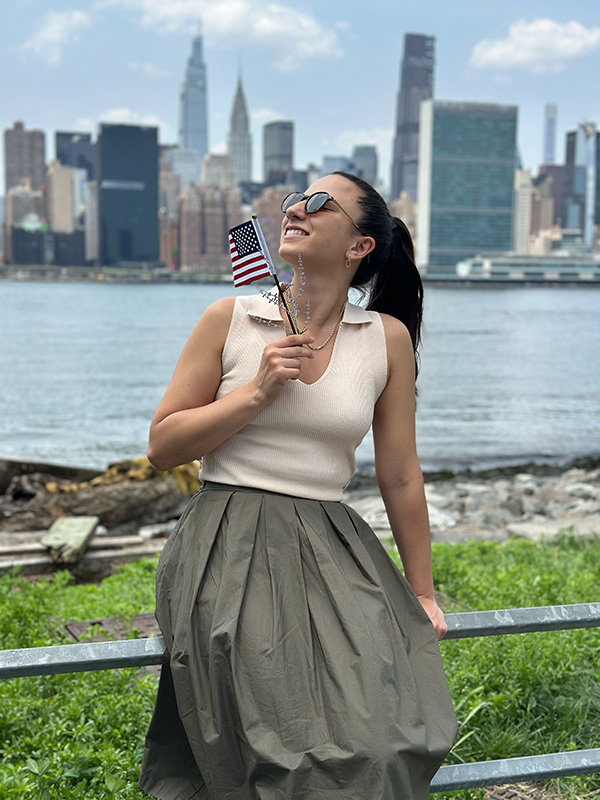Date
July 29, 2025
Alumni Spotlight: Ileana Pirozzi '18
 Born and raised in Italy, Ileana Pirozzi '18 came to the U.S. in 2014 to study biomedical engineering at Brown. She talks about why she chose Brown as an international student, and her journey as an international researcher and innovator in the United States. She recently became a naturalized U.S. citizen.
Born and raised in Italy, Ileana Pirozzi '18 came to the U.S. in 2014 to study biomedical engineering at Brown. She talks about why she chose Brown as an international student, and her journey as an international researcher and innovator in the United States. She recently became a naturalized U.S. citizen.
Ileana Pirozzi is the Head of Healthcare Ventures at Lingotto Innovation in New York City, where she leads early-stage investments in technologies at the intersection of healthcare, life sciences, and frontier engineering. Her work focuses on identifying and backing the next generation of companies redefining diagnoses, treatment and delivery of care.